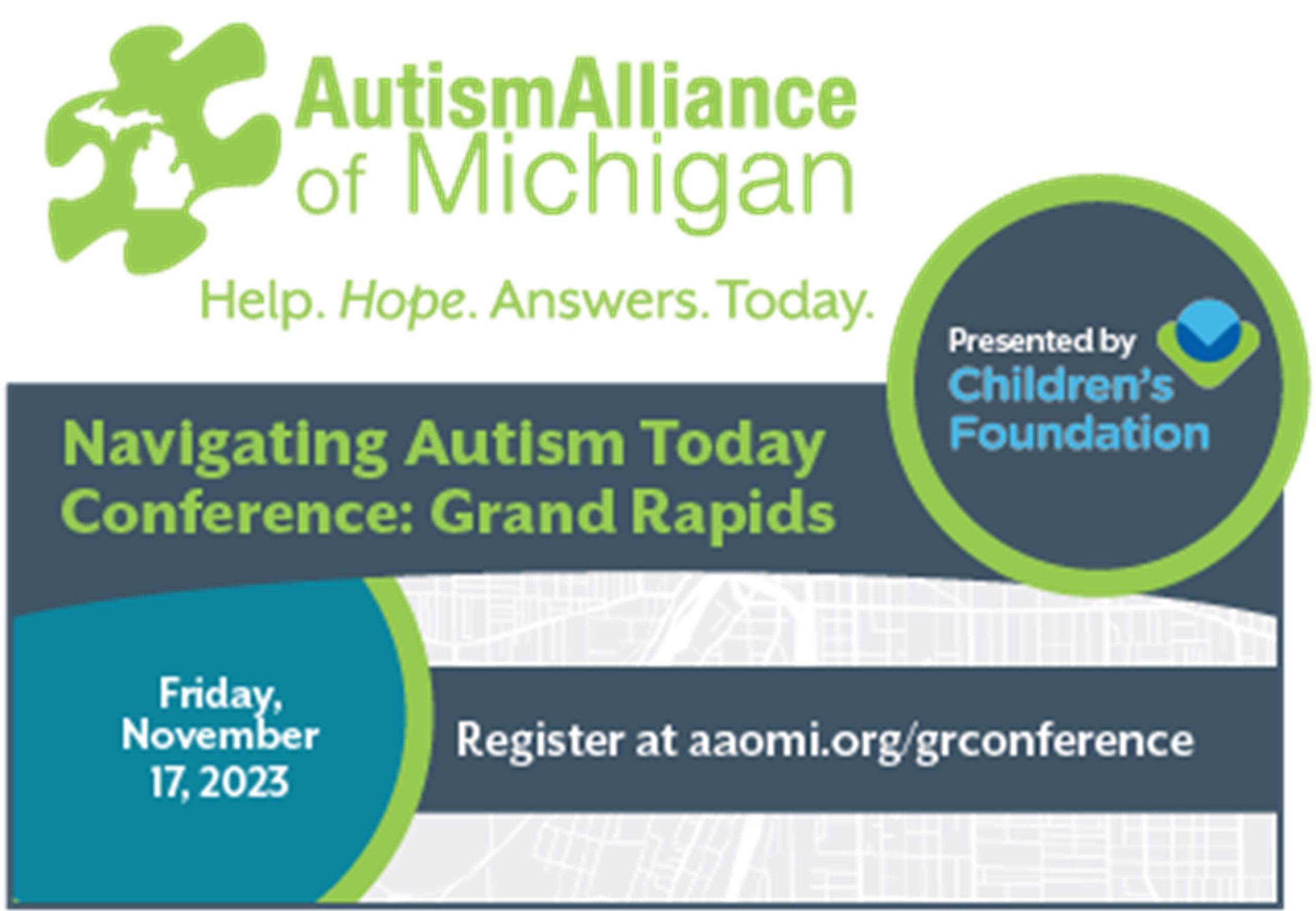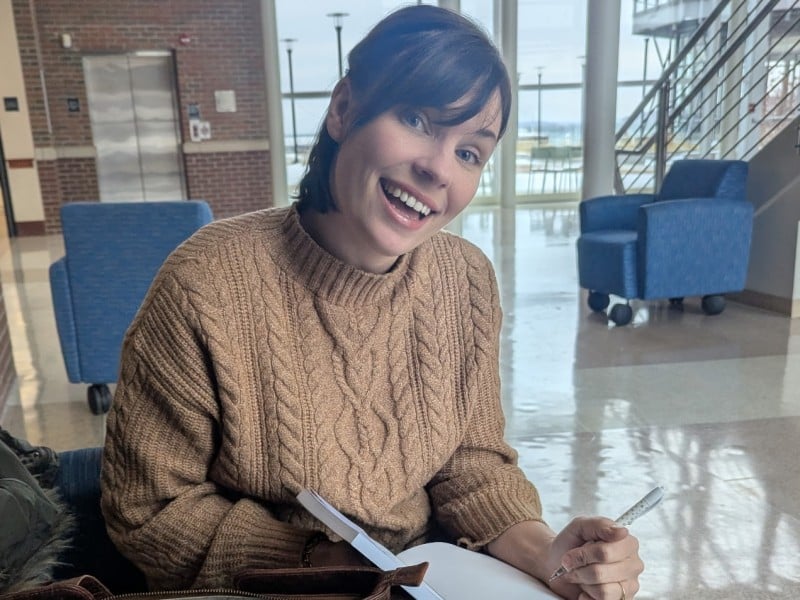
On Friday November 17, the Autism Alliance of Michigan (AAoM) will host a conference, “Navigating Autism Today” at the Grand Valley State University Pew Campus L.V. Eberhard Center from 8 a.m. to 3:30 p.m. AAoM welcomes parents, caregivers, families, and individuals living with autism as well as providers and educators to come, connect, and consider expanding their community networks and access to resources. The conference web page provides links to registration, sponsorship opportunities, and vendor table reservations.

“AAOM’s conferences have always originally been intended for caregivers, families, and parents,” says Erik Gallery, AAoM director of Statewide Access and Early Identification Initiatives. “In fact, the conferences used to be titled our ‘parent conferences.’ That’s always been the focus —providing an event for families to be able to gain access to some more up to date information and make connections to local providers. But we’ve definitely seen the audience including more providers.”
The keynote speaker for the conference is Hillary Hatch, the Social Security Administration public affairs specialist for West Michigan. Hatch will share, “What you need to know about SSI when you turn 18.”
Gallery notes that providers attending past AAoM conferences typically are interested in connecting with their peers and finding out what advancements are being made in terms of autism services.
“But really, our intention is to focus on the caregiver’s needs,” he says. “That’s why our content tracks are really focused on the lifespan needs of autism.”
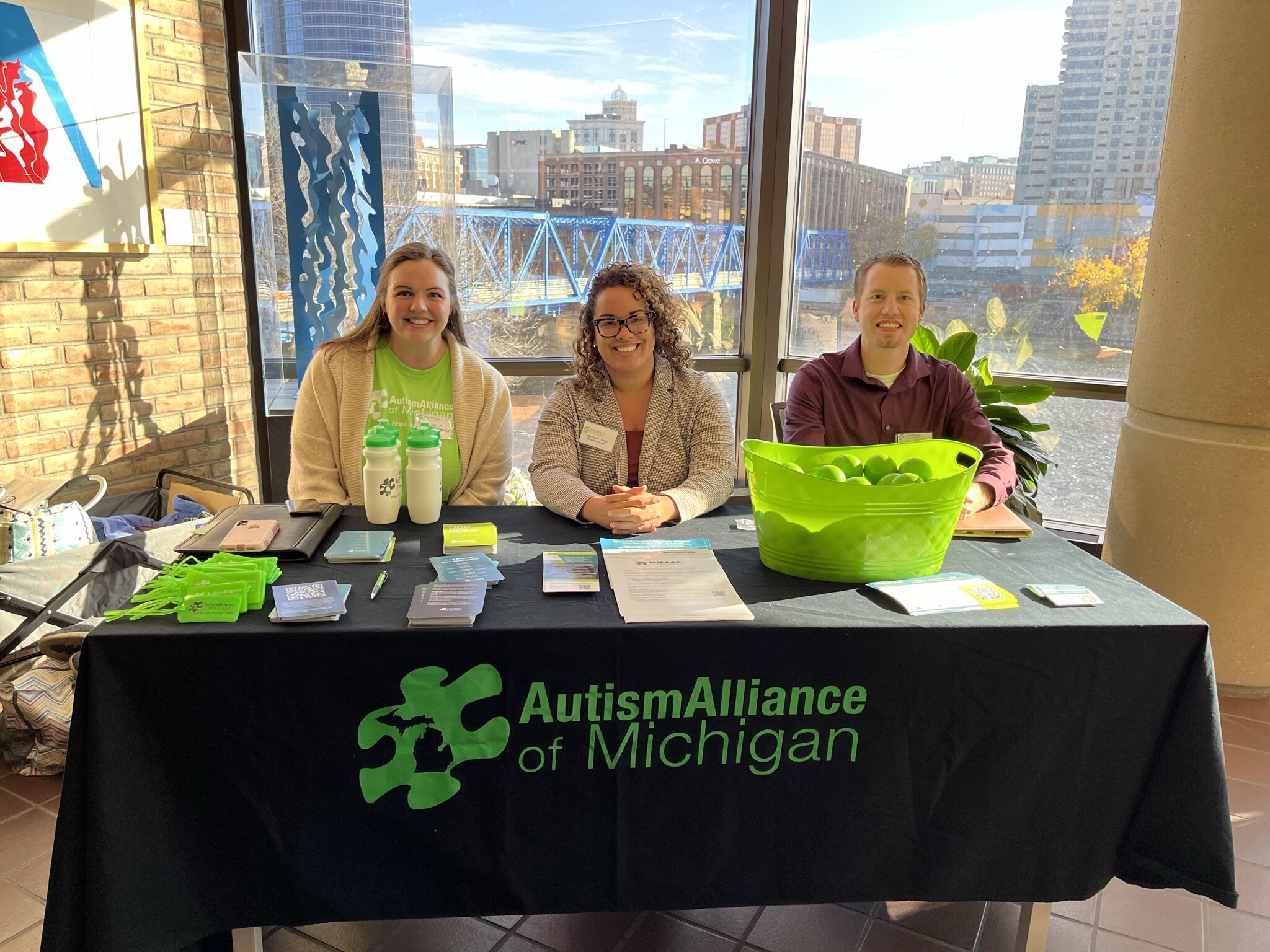
Topics offered during break-out sessions will speak to early intervention and diagnosis, building access to care, social needs and peer interaction, and transitional needs — independent living and vocational opportunities. Specifically, AAoM’s director of education reform Heather Eckner will lead a session on “Know your rights.” Dr. Jeana Koerber, executive director Great Lakes Center for Autism Treatment and Research, will talk about “Helping individuals with severe autism.” And the My Relationships Project will broach, “What is comprehensive sex education.”
“We have to remember that there are many adolescents, many adults living with autism. And they are going through the same physiological changes that we all have, and they have those same needs,” Gallery says. “It’s important that caregivers, those who are working with these individuals, and providers are really aware of what these needs are and understand what is it going to look like as that person gets older — and what does it mean to ensure that they’re getting quality sex education as part of their transition planning.”
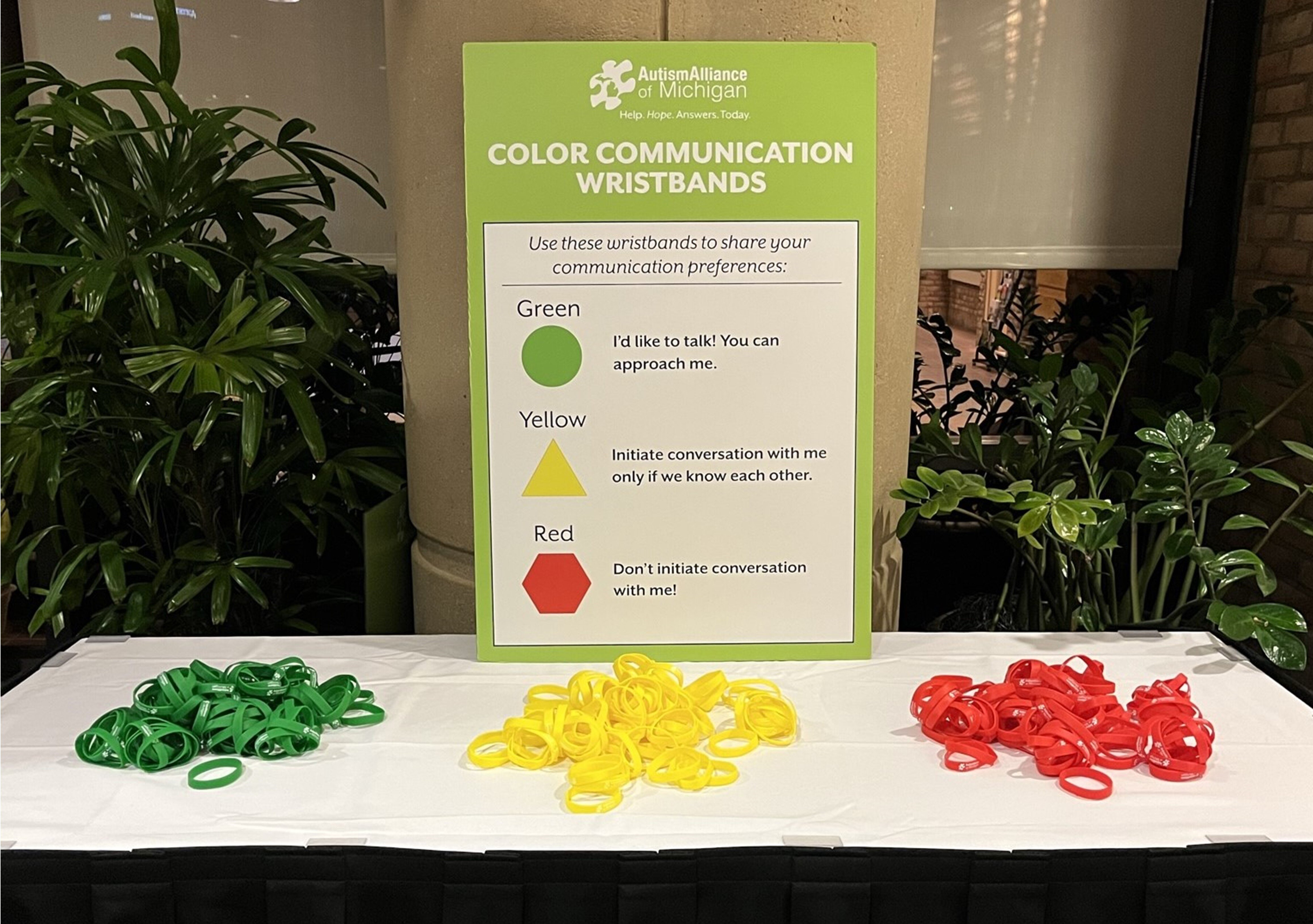
In addition, AAoM will share its Autism 101 training — a basic understanding of autism that shares tips, tools, and suggestions for improving communication — as well as MiNavigator information sessions. MI-Navigators provide free professional consultation on clinical, educational, insurance, vocational, public safety, policy, and legal issues.
“Parents and caregivers can’t be expected to know it all. Autism can present unique needs,” Gallery says. “It’s important that they are really able to understand all the services out there and ensure that there are opportunities and possibilities for their child.”
Providers in the autism services world are typically clinical service providers: board certified behavior analysts, occupational and speech therapists, clinical therapists, and some medical professionals — pediatricians and nurses.
“We do want to put a focus on understanding the early identification aspect of autism,” Gallery says. “Our ‘Watch me grow’ series of trainings, which we hope to build into the conference, has been geared towards professionals so they can be more prepared and able to readily identify some of those early signs of autism and make more timely referrals. The Autism Alliance has some pretty strong foundational trainings. People can look forward to accessing those when they come to the conference.”
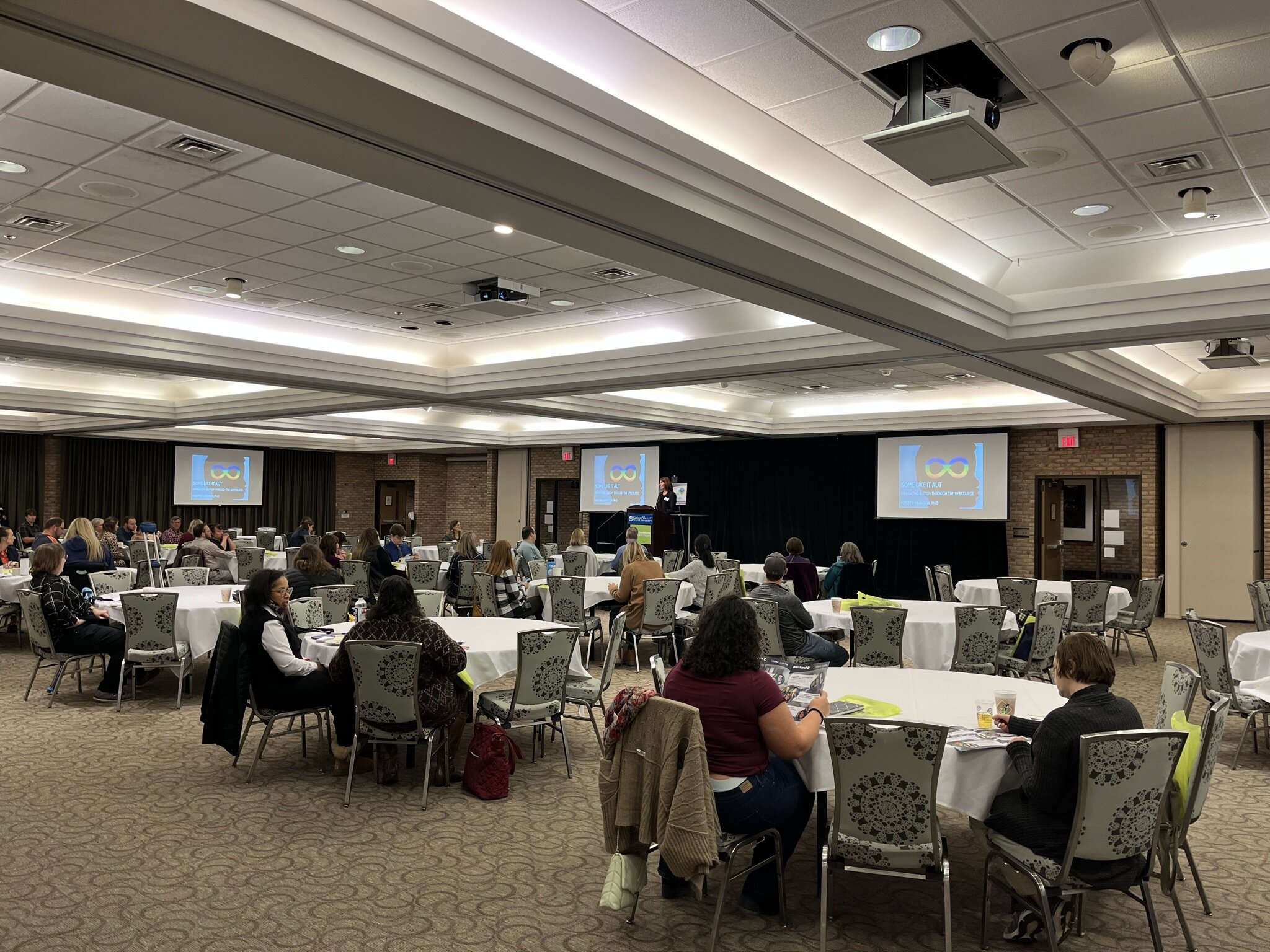
The AAoM’s goal for the conference is for parents and caregivers to have their questions answered, even if the conference presenters don’t talk about their particular topic of concern.
“We’re aware that not all the sessions are going to hit on maybe the specific question that’s lingering in their mind,” Gallery says. “AAoM staff from our MiNavigator program will be there to answer those questions and provide resource identification where it’s needed. We want parents to leave with some empowerment. Even if their questions aren’t answered, they now know of some options and different paths that they can look into that address some of their specific needs, whether that’s connecting with our MiNavigator program beyond the conference or finding another provider from their local area.”
For providers, the conference will provide foundational levels of collaboration. They will not only be able to connect with AAoM and sign on to become a part of its resource directory but also connect with other professionals from across the state who are seeking better ways to help their patients living with autism.
“We would want to ensure that they’re getting connected with our provider group meetings, statewide meetings that we host about every six weeks,” Gallery says. “These are really an opportunity for the providers to connect with each other that facilitates communication among them all.”
The provider group meetings also deliver key statewide updates from the Michigan Department of Health and Human Services and other groups that AAoM is aligned with.
“There are a lot of pockets of great and quality work happening across the state,” Gallery says. “But there’s not enough connection between all those providers. Sometimes that collaboration is really needed to be able to tackle some of these complex needs that come up for people living with autism.”
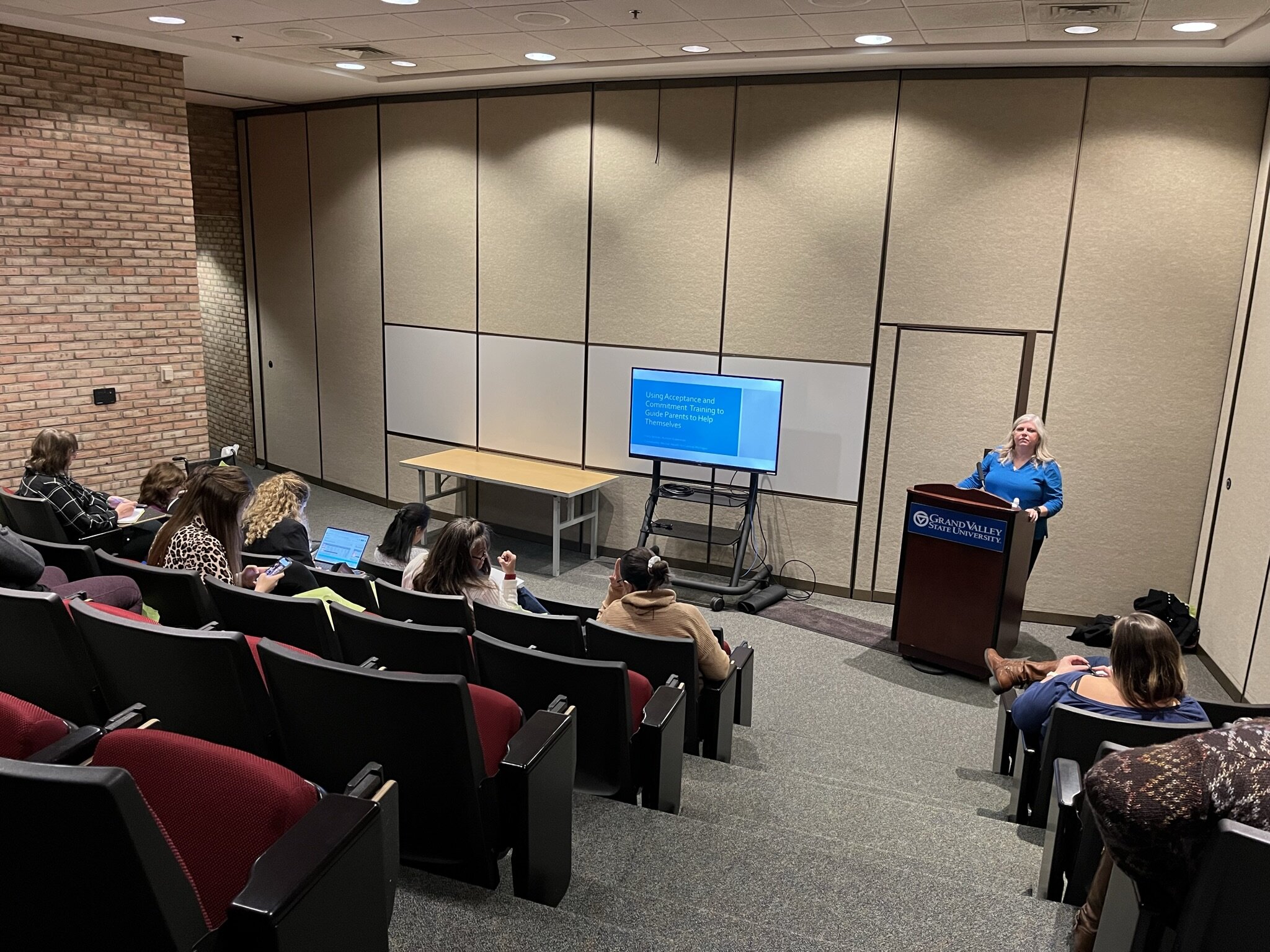
This conference will be the second that AAoM has held in Grand Rapids. The statewide organization is working hard to extend its reach to all Michiganders living with autism, their parents, caregivers, schools, providers, and employers. AS part of those efforts, AAoM opened a satellite office in the Grand Rapids area where vocational and other trainings will take place.
“Our hope is to continue to build on this,” Gallery concludes. “We’ve gotten positive feedback from the communities where we’ve been presenting these conferences, from both the caregivers that are starting to look forward to it and the providers that know that they can make some of these connections. We want to continue that. We know that there is a need for it. It’s incredibly difficult to take on the magnitude of some of these needs all by yourself or, for providers, even just within your own practice.”
Estelle Slootmaker is project editor for the Autism Alliance of Michigan series, Estelle.Slootmaker@gmail.com.
Photos courtesy AAoM.

